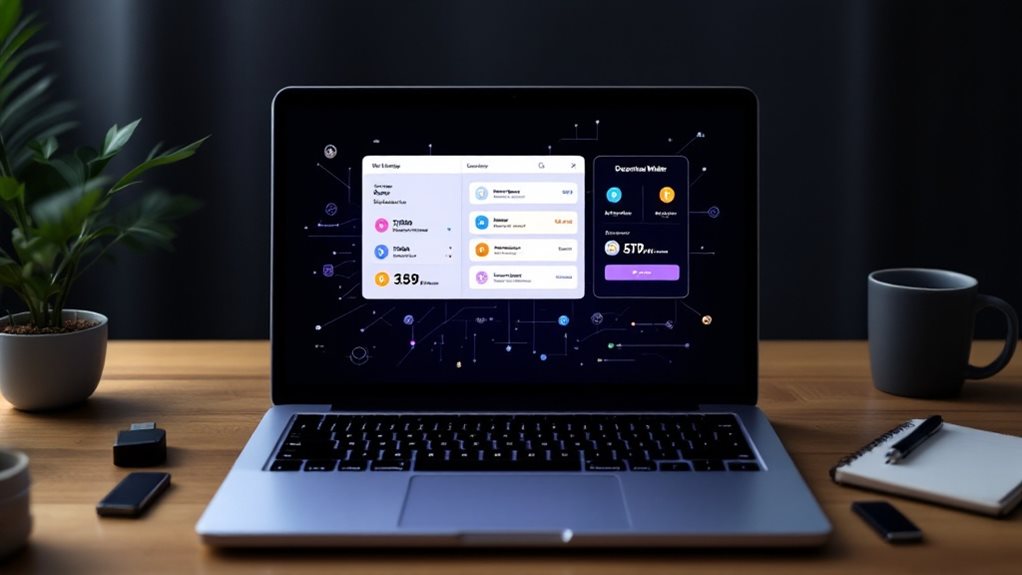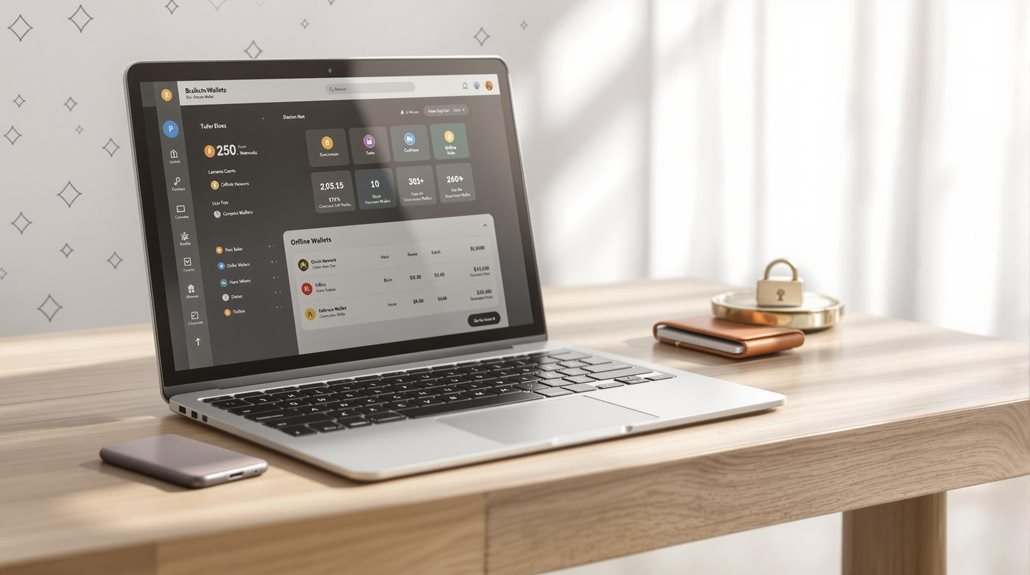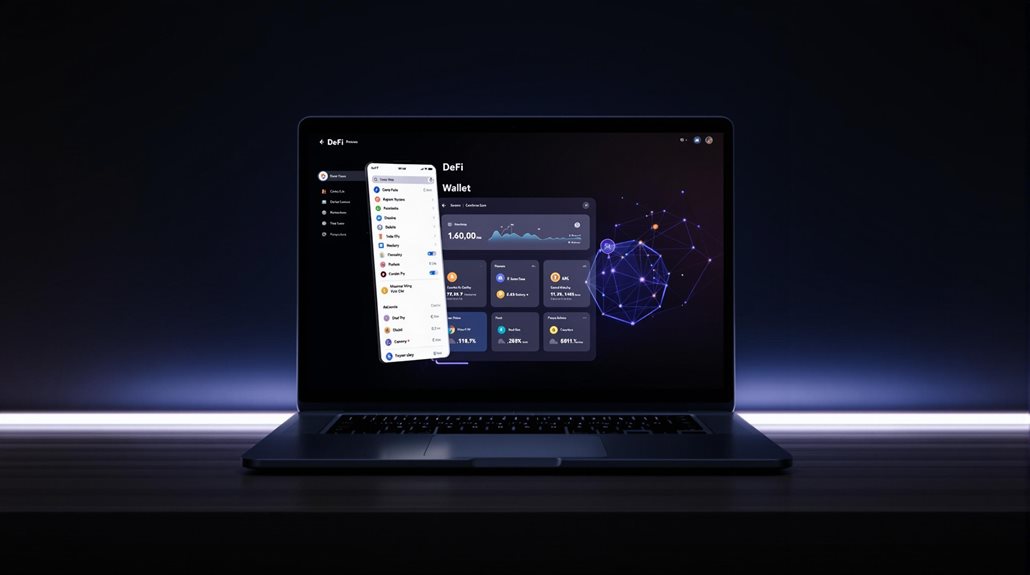A decentralized wallet is a digital tool that lets users directly control their cryptocurrency without banks or middlemen. It gives complete ownership of private keys, which are like special passwords for accessing crypto funds. These wallets come in different forms, including software apps, hardware devices, and web browsers. Unlike traditional banking, there's no central authority overseeing transactions or freezing accounts. Understanding decentralized wallets opens the door to greater financial independence.

A decentralized wallet puts cryptocurrency control directly in users' hands. These wallets don't rely on banks or other middlemen to manage digital assets. Instead, they give users complete control over their private keys, which are like special passwords that prove ownership of cryptocurrency. Users can send and receive crypto directly with others, making transactions more private and independent. The decentralized design helps distribute risk and enhances overall asset safety.
There are several types of decentralized wallets available. Software wallets like Trust Wallet and MetaMask can be installed on devices, while hardware wallets such as SecuX and Ledger Nano S store crypto offline for extra security. Desktop wallets run on computers, mobile wallets work on smartphones, and web-based wallets can be accessed through internet browsers. Trust Wallet has emerged as a particularly popular choice with over 60 million downloads. MetaMask has established itself as a leading wallet with user-friendly interfaces that make connecting to popular dApps seamless.
One of the main advantages of decentralized wallets is their enhanced security features. Since users manage their own private keys, they don't have to worry about a company getting hacked or going bankrupt. These wallets also connect directly to decentralized finance (DeFi) applications and Web3 services. Users don't need to provide personal information or go through identity verification to use them, and they work anywhere in the world. These wallets leverage public-key cryptography to ensure secure transactions and asset protection.
The freedom of managing your own crypto comes with important responsibilities and risks. If users lose their private keys, they can't recover their funds – there's no customer service to help. This makes decentralized wallets trickier for beginners who aren't familiar with crypto security. Users need to be careful about scams and phishing attacks that try to steal their private keys. Network congestion can also cause transaction fees to go up and down.
Decentralized wallets represent a key part of cryptocurrency's goal of giving people more control over their money. They're different from traditional bank accounts because they operate without central authority oversight. This means users don't need permission from anyone to send or receive funds, and no one can freeze their accounts.
The technology behind these wallets continues to improve, making them more user-friendly while maintaining their core benefits of independence and security. As cryptocurrency adoption grows, decentralized wallets provide a vital tool for people who want to participate in the digital economy without relying on traditional financial institutions.
Frequently Asked Questions
Can I Recover My Decentralized Wallet if I Lose My Device?
Yes, it's possible to recover a decentralized wallet after losing a device. The main way is by using the recovery phrase (also called a seed phrase) that was created when the wallet was first set up.
This phrase is usually 12-24 words long. There are also other recovery methods like cloud backups, social recovery through trusted contacts, and hardware wallet backups.
The recovery phrase is the most common method.
Which Decentralized Wallets Offer the Best Security Features?
Hardware wallets like Ledger Nano X and Trezor Model T are known for top-tier security features. They keep private keys offline in secure chips, protecting them from online threats.
Multi-signature wallets such as Gnosis Safe and Casa add extra security by requiring multiple approvals for transactions.
For software wallets, ZenGo's keyless MPC technology and MetaMask's phishing protection stand out.
Most secure wallets include 2FA, biometric authentication, and encryption.
How Much Do Decentralized Wallets Typically Cost to Set Up?
Decentralized wallets vary greatly in cost. Basic software wallets are often free, while mobile app wallets typically cost $0-5.
Hardware wallets range from $50-200. Custom wallet development is much pricier – simple ones cost $15,000-30,000, while complex versions can reach $100,000-200,000.
These costs depend on features like security levels, blockchain integration, and user interface complexity. Many developers also charge extra for maintenance and updates after launch.
Are Decentralized Wallets Compatible With All Cryptocurrencies?
Decentralized wallets aren't compatible with all cryptocurrencies. While major wallets like Trust Wallet and MetaMask support many popular coins, they can't handle every cryptocurrency out there.
Some wallets specialize in specific networks – for example, Phantom wallet only works with Solana.
Hardware wallets like Ledger and Trezor support over 1,000 cryptocurrencies, and multi-chain wallets are becoming more common as cross-chain compatibility grows.
What Happens to My Assets if the Wallet Provider Goes Bankrupt?
If a wallet provider goes bankrupt, users' crypto assets remain safe and accessible.
That's because decentralized wallets don't actually hold the cryptocurrencies – they're just tools to interact with the blockchain.
The assets stay on the blockchain, and users keep their private keys.
They can use their seed phrase to access their funds through any other compatible wallet software, even if the original provider isn't around anymore.





